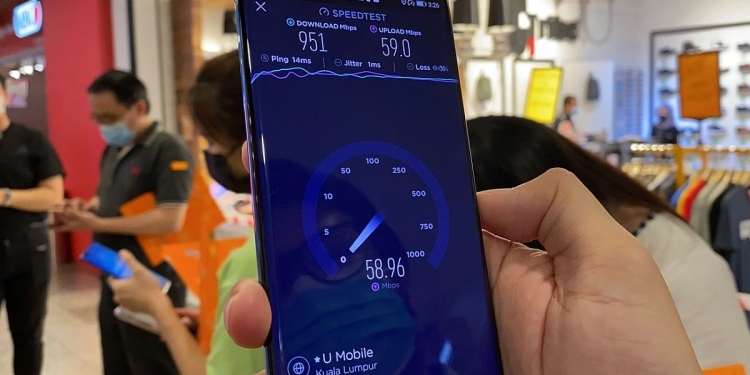On Wednesday, Communications and Digital Minister Fahmi Fadzil announced the Pakej Perpaduan (Unity Package) which offers cheaper prepaid data for youths, B40, People with Disabilities (OKU), senior citizens and veterans. He added that the data package offers half the price and triple the speed.
Eligible users can get 30GB of data for RM30 and it’s valid for 6 months. That’s equivalent to RM1 per GB but with six times longer validity. While the initiative is aimed at reducing the cost of living, it appears that the Pakej Perpaduan fails to hit the mark and here’s why.
The plan is slower, not 3x faster
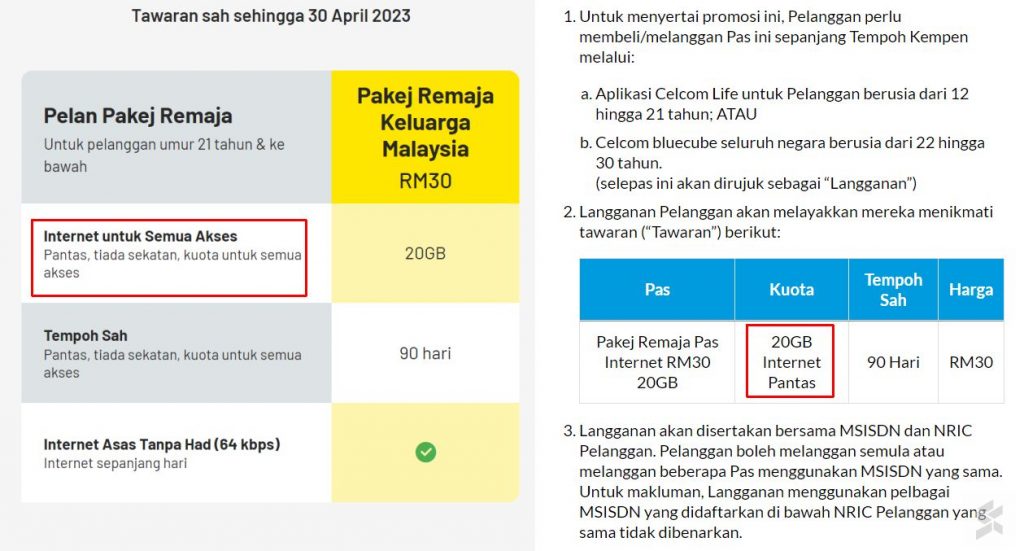
During the announcement, it was revealed that Pakej Perpaduan is essentially an upgrade to Pakej Remaja Keluarga Malaysia which was announced by former Communications and Multimedia Minister Tan Sri Annuar Musa in September 2021. It was claimed that the new Pakej Perpaduan offers 3x higher speed with an upgrade from 1Mbps to 3Mbps.
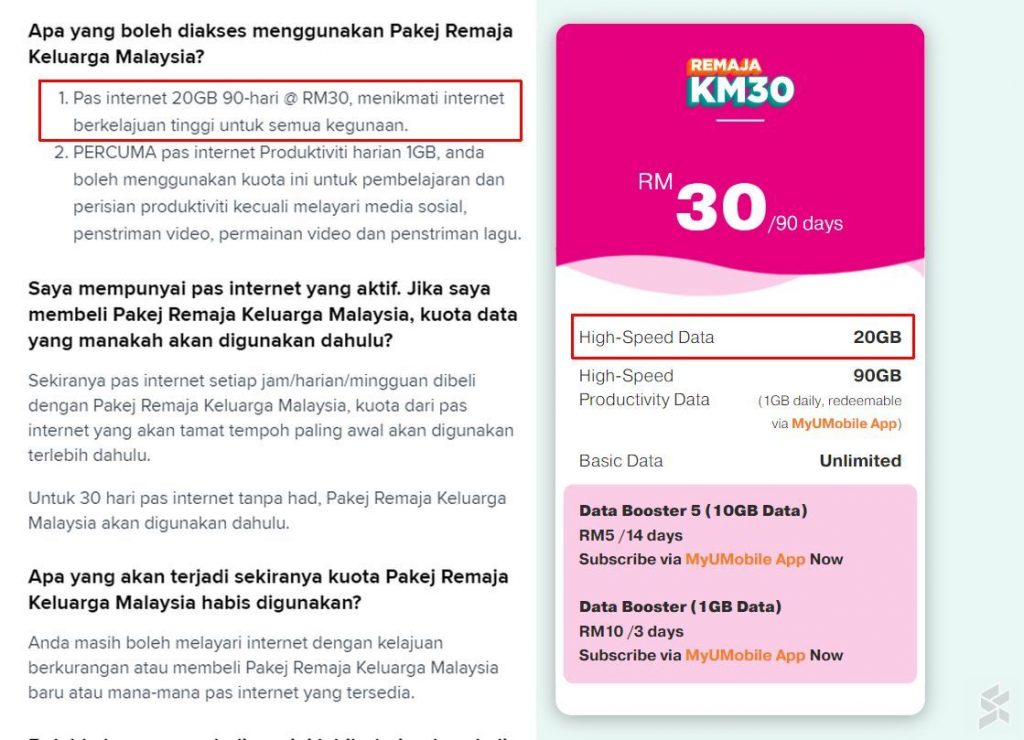
If we look back at the previous announcements, there was no mention of a 1Mbps speed cap at all. When we check the respective Pakej Remaja pages on the big four telcos’ websites, it is listed that the 20GB of data is high-speed with no speed cap or restrictions. This means users will be able to enjoy uncapped speeds subject to the network conditions.
Since Pakej Perpaduan now has a 3Mbps speed cap, the new plan is definitely slower and not faster.
Average users would definitely use more than 5GB per month
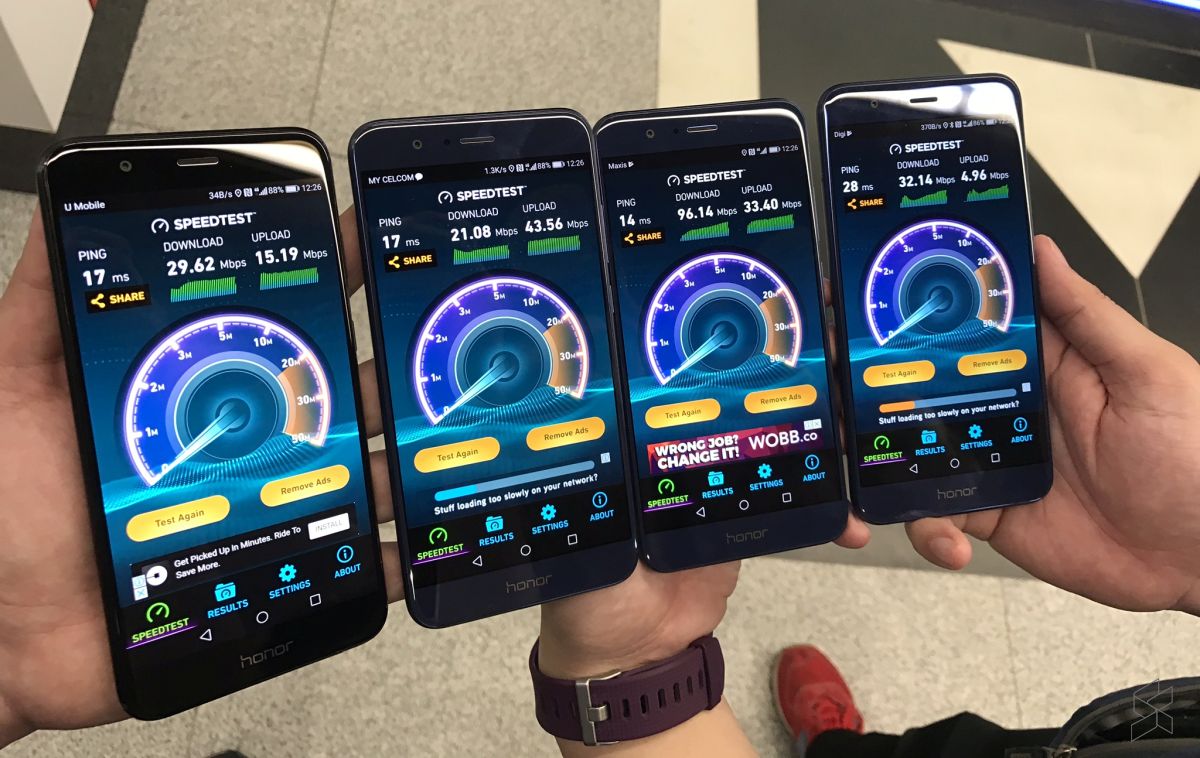
Looking at the plan, this is great for casual and light users. With 30GB of data valid for 6 months, that’s an average of 5GB per month for RM5/month. No doubt that the effective monthly commitment is 50% lower than Pakej Remaja but the reality is how many could survive with just 5GB per month?
If we are looking at youths and the B40 segment, most of them rely on their mobile data as their sole internet connectivity. We are talking about users without fixed broadband, and they would use their mobile data both on the go and at home. It’s no wonder Malaysia is one of the highest mobile data users in the world.
According to Opensignal, Malaysia recorded the highest data growth among 5 SEA countries between 2020 to 2021. Most recently, Celcom said its average monthly data consumption per user has increased from 14.9GB in Q1 2020 to 26.2GB in Q3 2022. That’s partly the reason why “unlimited” prepaid plans have gotten so popular these days, especially with the rise of video-based social media platforms such as TikTok. We do know that some users could use more than 300GB per month and that’s one of the reasons why telcos are tightening their FUP for mobile data.
If the core focus is to reduce cost, why not offer 30GB with uncapped speeds for RM15/month instead? After all, most telcos are offering 1GB of data for RM1 or less these days.
The focus should be on improving accessibility to fibre broadband

Reducing prices isn’t sustainable in the long run. What’s the point of having a cheap plan if consumers can’t get decent speeds or access to quality coverage? The government should be looking at improving the overall internet experience and one area that it needs to look at is increasing the adoption of fibre broadband.
According to the last JENDELA report, Malaysia has achieved 7.44 million premises passed by fibre, which is 50% more than before JENDELA was started in August 2020. However, the number of premises passed doesn’t mean these premises or homes are directly connected to fibre.
TM which is the biggest fibre broadband player currently has 2.98 million fixed broadband subscribers as of Q3 2022, and that’s less than half of the total fibre premises passed. We all know that fibre broadband provides significantly better and more reliable internet with compared to mobile data, but why aren’t more people jumping on board?
Could it be most users are staying in rented homes and finding it hard to commit to a 24-month contract? Could it be due to ridiculous termination fees which are just too expensive for B40 folks?
Back in 2021, we reported that several fibre broadband providers have changed their terms and users are forced to pay the entire remaining months of their subscription in full if they were to terminate early. When we asked MCMC about this ridiculous practice, they said consumers are responsible for accepting the T&C. The government should look into these unethical terms and penalties if we want more people to switch to fibre.
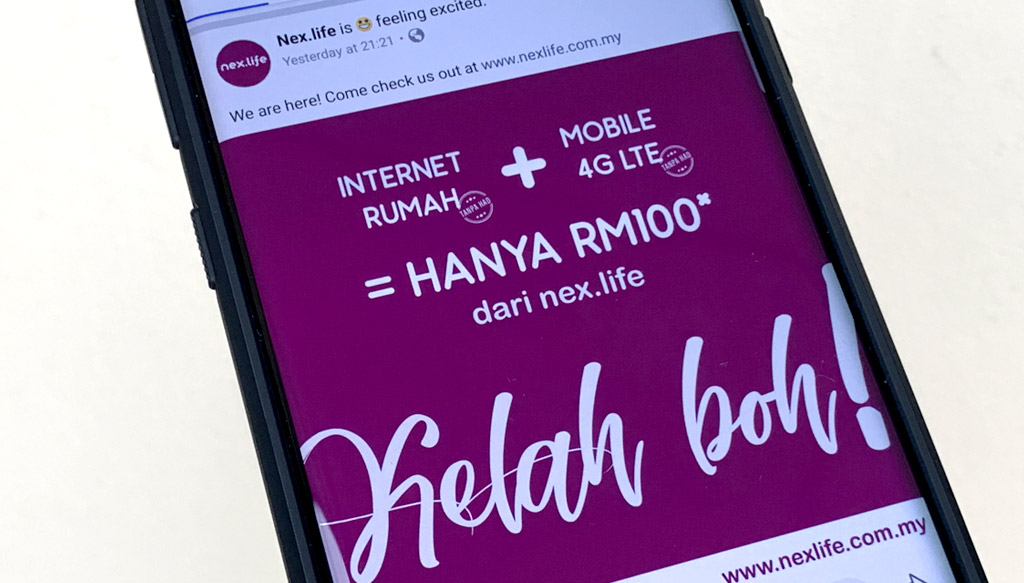
Getting fibre broadband might be a costly affair for B40 familes and the government could look into getting providers to introduce a lower no-frills plan with a shorter contract period. One suggestion is a budget RM50-80 monthly unlimited fibre plan with 20Mbps speeds. For greater value, it could be bundled with an unlimited mobile data package similar to Webe’s old Nex.Life offering. The plan came with a shorter 12-month contract and users will get unlimited 30Mbps fibre broadband plus a SIM with unlimited 4G data for RM100/month.
We hope that Fahmi will consider these pointers for his upcoming good news for fixed broadband users.

